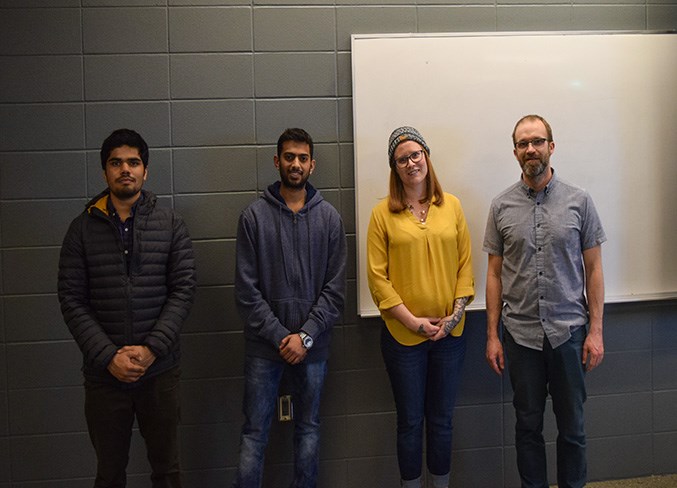SAIT is teaming up with Light Up The World (LUTW) once again to bring solar electricity systems to Peru.
LUTW is a Calgary-based non-profit focused on bringing electricity to remote communities.
The organization has been in operation since 2002 and focuses on replacing kerosene lamps, which give off toxic fumes, with clean, renewable lighting sources.
A team of electrical engineering students and SAIT instructors will be installing a 75-Watt photovoltaic system in the village of Cuncani, which is roughly 50km north of Cusco, a major city in southeastern Peru.
The systems they’ll be installing are relatively simple, but effective.
“It includes a photovoltaic module that converts [solar energy] into electricity, a battery that will store the electricity, and a controller system that will facilitate that transfer and allow for other loads (like lighting or a phone) to be plugged into that,” said Darko Stelkic, SAIT electrical engineering instructor and project leader for this trip.
Stelkic has been a part of the project every year since SAIT started working with LUTW three years ago.
“I found out about LUTW through Dave [Halliday, founding member of LUTW] and I saw that our students have those [electrical] skills,” said Stelkic.
“I felt humbled by the idea that, at that time, a 5-Watt module could provide lighting that replaces a kerosene lamp which is not very good at lighting.”
After installations are complete, a team from LUTW will teach a select few villagers how to maintain the systems to ensure they last.
The systems are built to be as inexpensive as possible to facilitate the low income in these villages.
“Fifty dollars might not be a huge amount of money in our perception but you go and try to sell this [system] to someone who’s maybe making $50 a month and you realize quickly that this is prohibitive.”
The group will be in Peru from May 1 to 12.
One of Cochrane’s very own will be participating in the project.
“I felt like because I was an electrician and we were just learning about photovoltaics in our class that it was the perfect opportunity,” said Adrienne Bosma, who is finishing classes for her journeyman electrician certification.
“And it’s a way to improve the quality of life for people who don’t have the means to be able to improve it in that way themselves.”
The project will serve as a learning experience for the group, as well as a humanitarian effort.
“I’m hoping to take away some leadership skills and really step out of [my] comfort zone.”
Peru’s natural climate promises to provide some physical discomfort for the team.
“The elevation is 4,000 metres so as much as it’s going to be springtime, it’s going to be cold,” said Bosma.
The group’s lodgings during the stay also lacks modern staples such as running water and heating.
The project relies on donations through the SAIT crowdfunding resource found online. The project is over halfway to its goal of $3,000 with $1,763 raised from 36 donors. The crowdfund has until the end of Thursday, April 4, to meet its goal.




